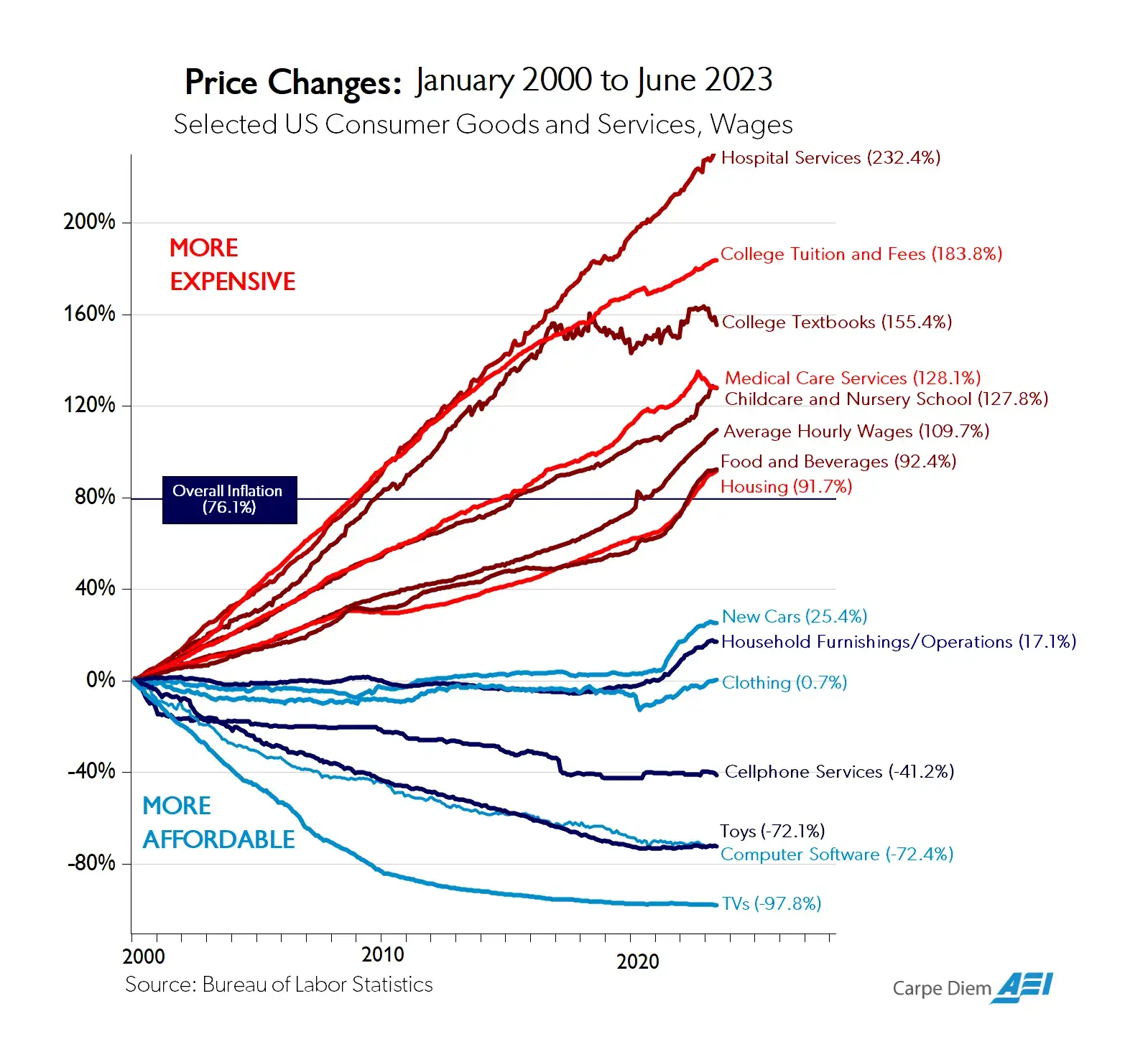

Beats me on what do they spend those taxes
It’s spent on what is by far the most powerful, expensive, and expansive military in the world, with funding about equivalent to the next ten militaries combined. All of Europe barely has any military spending by comparison; NATO is almost entirely propped up by the US military industrial complex. If US foreign policy wasn’t so doggedly imperialist, we might have room for some healthcare.
That’s not even getting into how medical corporations in the US are more or less financially unrestrained and allowed to make as much money as they want, paired with an insurance industry with the same conditions, and both industries becoming more and more consolidated, with all the big players participating in the stock market. The result is a race to the top in which everything is made far more expensive than it needs to be in order to please shareholders. In this environment, spending government money on US healthcare is substantially less efficient than the same spending would be in a European country.
Correction of these markets, as with housing, is likely to be financially devastating to the economic elite, but also critical to the prosperity of real people in this country.




OP is absolutely mistaken that it’s somehow ableist to stick to a meeting deadline or similar “punishment” for lateness, and t3rmit3 has said why much more eloquently than I could. However, you’ve said something that I can’t let pass without a rebuttal.
This is making a moral judgment on what you believe is in someone’s mind, and your judgment is based on a false premise. There exists an extremely common mental disorder (so common that some might consider it a form of neurodivergence) that when left untreated makes it much harder to do the things you want and are obligated to do. It’s harder to start doing things, it’s harder to stop, it’s harder to focus yet too easy to focus, it’s harder to remember important things, and it’s harder to motivate yourself to do anything you aren’t doing at any given moment, and anything you have to put effort into motivating yourself to do leaves you with less mental energy to do anything else in that category.
The one thing that can usually overcome all of these mental blocks is panic - when you’re actually out of time and Consequences are approaching if you don’t do something RIGHT NOW then you can finally do what you need to do and get something done - later than you wanted, worse than you wanted, more mentally drained, and with plenty of reasons to beat yourself up over it, not that it helps if you do. This is the reason behind why most people show up perpetually late. They might not let the emotional turmoil show, but if they’re consistently a few minutes late for everything, I can just about promise it’s not because they don’t care.
People who have this disorder and receive prescription medication for it often describe the first dose as like receiving superpowers. The idea that they can decide they want to do something, and then just go do it? Without thinking about it? No buildup? No psyching yourself into it? No roundabout coping strategies? No reorganizing the entire structure of your life to make it happen? No bargaining with the goddamn monkey in your brain that almost never lets you do the rational thing? Wait, normal people don’t have the monkey? They live like this every day, without any expensive pills? Impossible. It couldn’t be that simple. Do they have any idea how lucky they are?
Your misplaced sense of moral superiority is unfortunately quite common, but it’s not going to help these people, it’s going to hurt them. If it’s affecting their life, and it often is, they need treatment and training in how their brain works, not to be told they’re a piece of shit who doesn’t care about others and are choosing to inconvenience everyone else in their life including themselves. That’s only going to put them in a worse place.